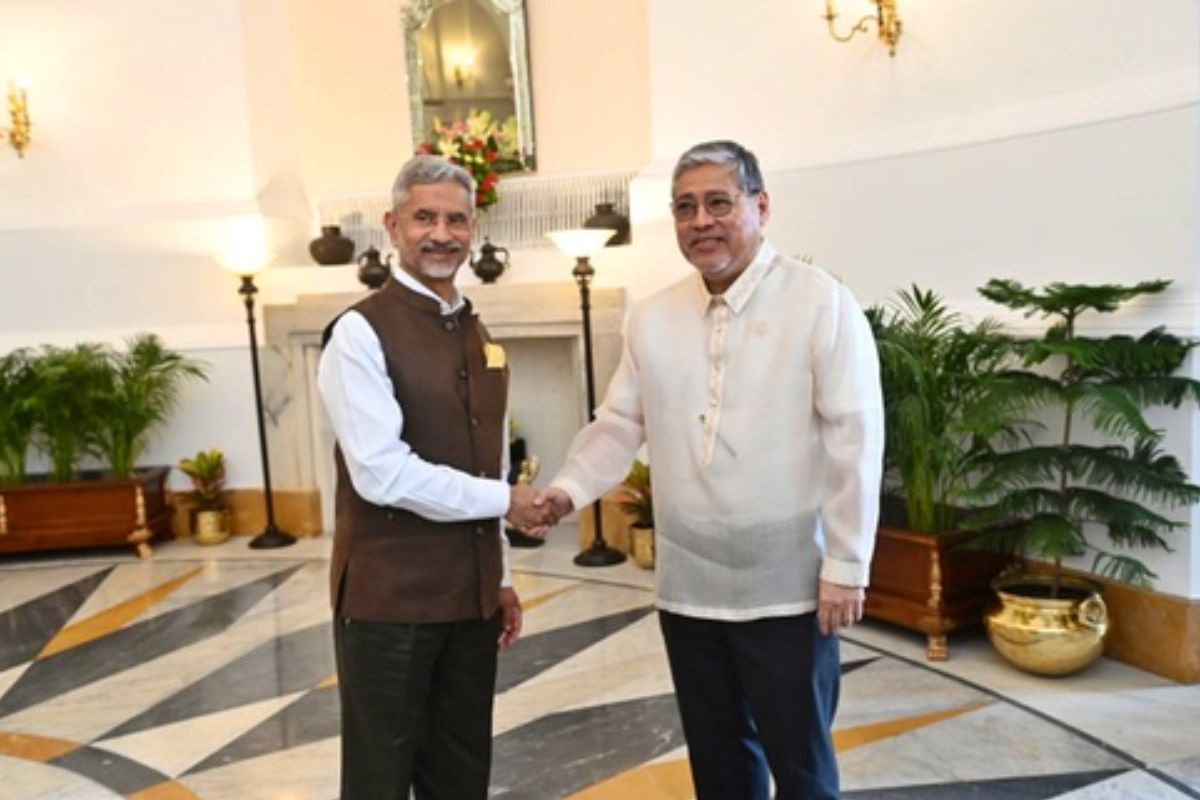Amid China’s increasing assertiveness on maritime issues, India and the Philippines on Thursday underlined the need for a peaceful settlement of disputes and for adherence to international law, especially the United Nations Convention on the Law of the Sea (UNCLOS) and the 2016 Arbitral Award, on the South China Sea.
The two countries emphasised that they have a shared interest in a free, open and inclusive Indo-Pacific region.
Advertisement
The two countries held wide-ranging and substantive discussions on regional and international issues of mutual concern at the fifth meeting of their joint commission on bilateral cooperation here in New Delhi.
The Indian delegation was led by External Affairs Minister S Jaishankar while the Philippines delegation was headed by Secretary for Foreign Affairs Enrique A Manalo who is on an official visit to India.
On defense cooperation, the two sides expressed keen interest to continue to work together in this sector, including through the regular or upgraded official-level interaction among defense agencies, the opening of the resident Defense Attaché office in Manila, consideration of India’s offer for concessional Line of Credit to meet Philippines’ defense requirements, acquisition of naval assets, and expansion of training and joint exercises on maritime security and disaster response, among others.
The two ministers encouraged early negotiations for a bilateral Mutual Legal Assistance Treaty on Criminal Matters and a Treaty on the Transfer of Sentenced Persons. It was agreed that the first round of talks would be held in the Philippines in August 2023.
Recognising terrorism and transnational crimes as common security threats, they directed that the 2nd Joint Working Group (JWG) on Counter-Terrorism meet in the Philippines in 2023 and discuss forging a Memorandum of Understanding on Cooperation in Preventing and Combating Terrorism and Transnational Crime.
They expressed satisfaction at the ongoing cooperation between the two countries in ASEAN and at multilateral forums and agreed to continue to work together in the United Nations and other multilateral organisations, especially on issues such as climate change, sustainable development and counter-terrorism.
The two countries would also support each other’s candidatures to various multilateral organisations to enable both countries to play a more active role in these organisations.
